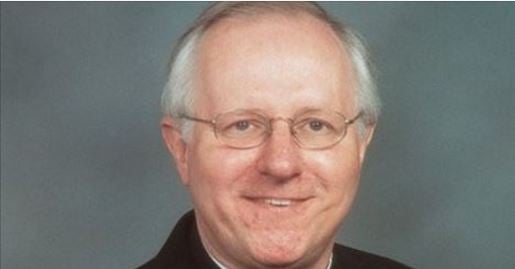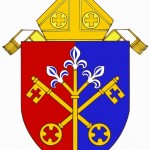When Pope Francis visits the Philippines this week, the self-styled “Company of Priests With Families” holds hope that the pontiff will recognize them. According to Reuters, Father Jess Siva from the town of Lambunao, founder of the group, is one of at least five priests from the Archdiocese of Jaro and the neighboring Archdiocese of Bacolod who have abandoned the Church’s celibacy requirement and are raising families.
In 1997 Silva officiated at the wedding of a fellow Catholic priest, Hector Canto. On January 11, Silva baptized Canto’s five-month-old son, the fourth child for Canto and his wife.
Silva and his associates, having violated the long-standing celibacy requirement for Catholic clergy, are officially suspended from ministry. That means that their celebration of the liturgy is illicit–although not invalid, inasmuch as priestly ordination confers a permanent mark on the recipient.
Could the Catholic Church permit married priests?
Yes, she already does. Under certain circumstances, a man who has served as a married priest in the Anglican communion or certain Protestant denominations may be ordained to the Catholic priesthood, even though he is already married. In fact, my friend and fellow Patheos blogger, Fr. Dwight Longenecker, is a former Anglican cleric, now a Catholic priest who is also a husband and father. And Catholic priests in some Eastern rites are permitted to be married, inasmuch as their disciplines developed differently.
Unlike the male-only priesthood, which has been clearly defined dogma within the Catholic Church, the idea of priestly celibacy is a discipline that could be reconsidered. Pope Francis said last year that he believes priests should be celibate but that the rule, which dates back over a thousand years, could be changed someday. According to Reuters:
“Celibacy is not a dogma,” he said when asked by a reporter whether the Church might consider allowing priests to marry as they can in the Anglican, Protestant and Orthodox Churches. “It is a rule of life that I appreciate very much and I think it is a gift for the Church but since it is not a dogma, the door is always open.”

One person who is well qualified to discuss the issue is theologian and author Thomas D. Williams, who currently serves as Permanent Research Fellow at the Notre Dame Center for Ethics and Culture in Rome. Dr. Williams was ordained a Catholic priest in 1994 and later granted a dispensation by the Holy See in order to marry in the Church.
I invited Dr. Williams to comment regarding the Philippine priests’ quest for a change in Church discipline regarding priestly celibacy. “Well,” he responded,
“..my basic thought is that personal failures don’t necessarily mean that institutions like priestly celibacy are necessarily wrong-headed. The fact that many married people commit adultery shouldn’t call into question the validity of marriage as an essential social institution. We would often justify our personal wrongdoing by blaming an institution or by changing a norm, rather than by changing ourselves. Part of being an adult means taking accountability for our actions and their consequences.”
* * * * *
Dr. Williams holds degrees in theology, philosophy and business administration, as well as a diploma in languages and classical humanities. He taught theology for more than a decade at the Regina Apostolorum Pontifical Athenaeum in Rome, where he served as dean of the theology school for 7 years. He has also taught and lectured in Ireland, Poland, Peru, Venezuela, Spain, Mexico, Switzerland, Germany, Côte D’Ivoire, and the USA.
He was founding publisher of Zenit News Agency and has written fifteen books including A Heart Like His: Meditations on the Sacred Heart of Jesus and, most recently, But for the Grace of God: An Interview With Thomas D. Williams. Dr. Williams ceased exercise of his priestly ministry but continues to serve the Church.











